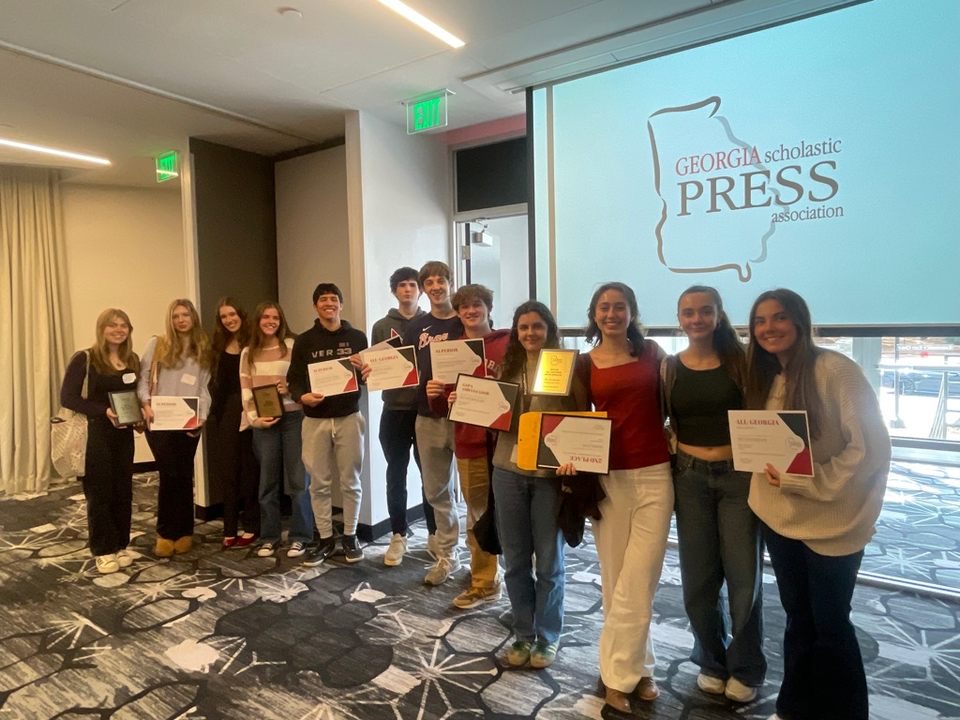BY CARSON SHADWELL
For many students, watching a movie in class is an activity much anticipated as a way to take a break from the typical classroom workload. This year, however, administrators are increasingly encouraging guidelines to limit the amount of time students spend watching movies.
Instructional coach Brandi Sabb said teachers have been told not to show full-length movies. Instead, the teacher handbook states that teachers may show educationally relevant clips only if they enhance a lesson. This rule, although not an official policy and therefore not strictly enforced, has been a part of the teacher handbook in the past. This guideline has become contentious this year.
Speech and communications teacher Mario Herrera believes the emphasis on guidelines is due to the administration’s perception that teachers abuse the ability to show movies.
“There are questionable movie choices made,” Herrera said. “It’s just like with [literature choices]. There has to be a curricular purpose.”
Sabb said she has encouraged teachers to avoid showing movies if the material has already been covered during instruction.
“Movies offer different perspectives on things that ought to be taught, but it’s important to avoid redundancy,” Sabb said. “If the administration believes [movies] are hindering instruction, [the guidelines] will be considered for an official policy.”
Many teachers support the initiative. Physics teacher Jeff Cramer strongly supports the use of a lecture and hands-on approach to instruction, rather than a video-focused approach.
“I’ve walked into many classrooms where movies are being shown just to fill space,” Cramer said. “They are often violent, with loud noises, and no follow-up questions or discussions.”
Math teacher Andrew Nichols is generally opposed to showing movies in his class.
“If I show a movie that is not relevant to the [class], that’s me falling down on the job,” Nichols said.
Some hope the guidelines are not enforced as an official policy.
“I think an arbitrary decision, ‘Don’t do this, do do that,’ is a bad approach,” Nichols said. “I just generally support teachers being able to make their own professional decisions.”
Herrera agreed with Nichols.
“Restricting educational possibilities works against the student and teacher,” Herrera said.
Students also have mixed opinions about the guidelines. Junior Tucker Lancaster enjoys movies but finds they are abused as a teaching tool.
“When we watch CSI all the time in chemistry, I’m not sure how much I’m learning from that,” he said.
Some, like senior Lucy Bradley, enjoy movies during class as an opportunity to take a break.
“It’s really easy to check out during a movie,” Bradley said. “The teacher is not going to teach, so I don’t have to listen.”
Other students expressed distress over being shown irrelevant movies.
“We’ve all seen Remember the Titans 50 billion times,” senior Mona Adams said.
Junior Qri Montague finds she is often shown movies that are completely unrelated to class.
“We’ve watched Law and Order, IP Man in biology and Slumdog Millionaire in American government,” Montague said.
She does not, however, believe enforcing the guideline of only showing short clips is the right solution.
“If [the teacher] starts teaching after just a short clip, we’re still all going to be focused on the movie,” Montague said.
Lancaster agrees that the guidelines do not address the true source of the problem.
“[Watching movies is] not an issue of length,” Lancaster said. “It’s an issue of relevancy.”










